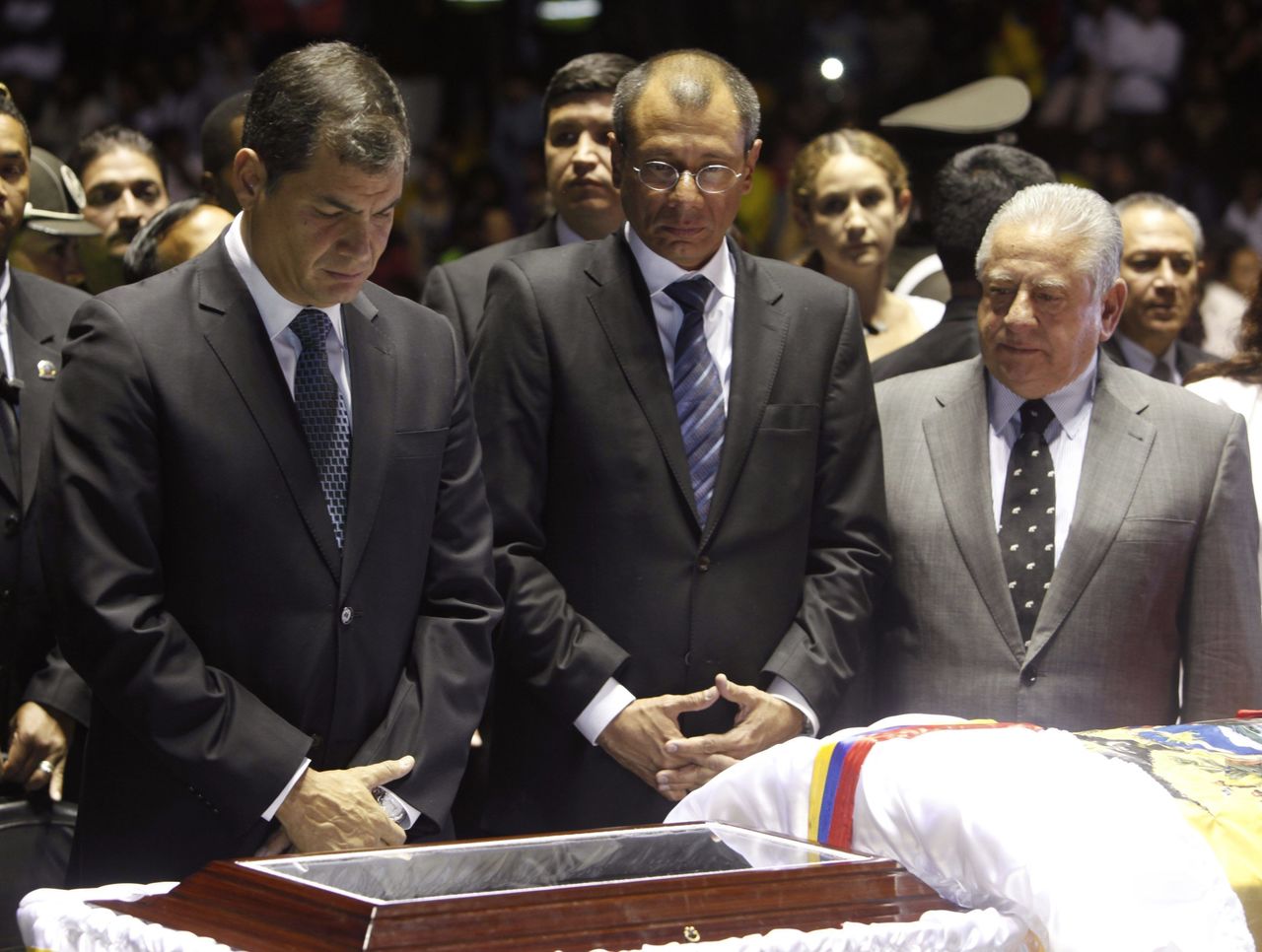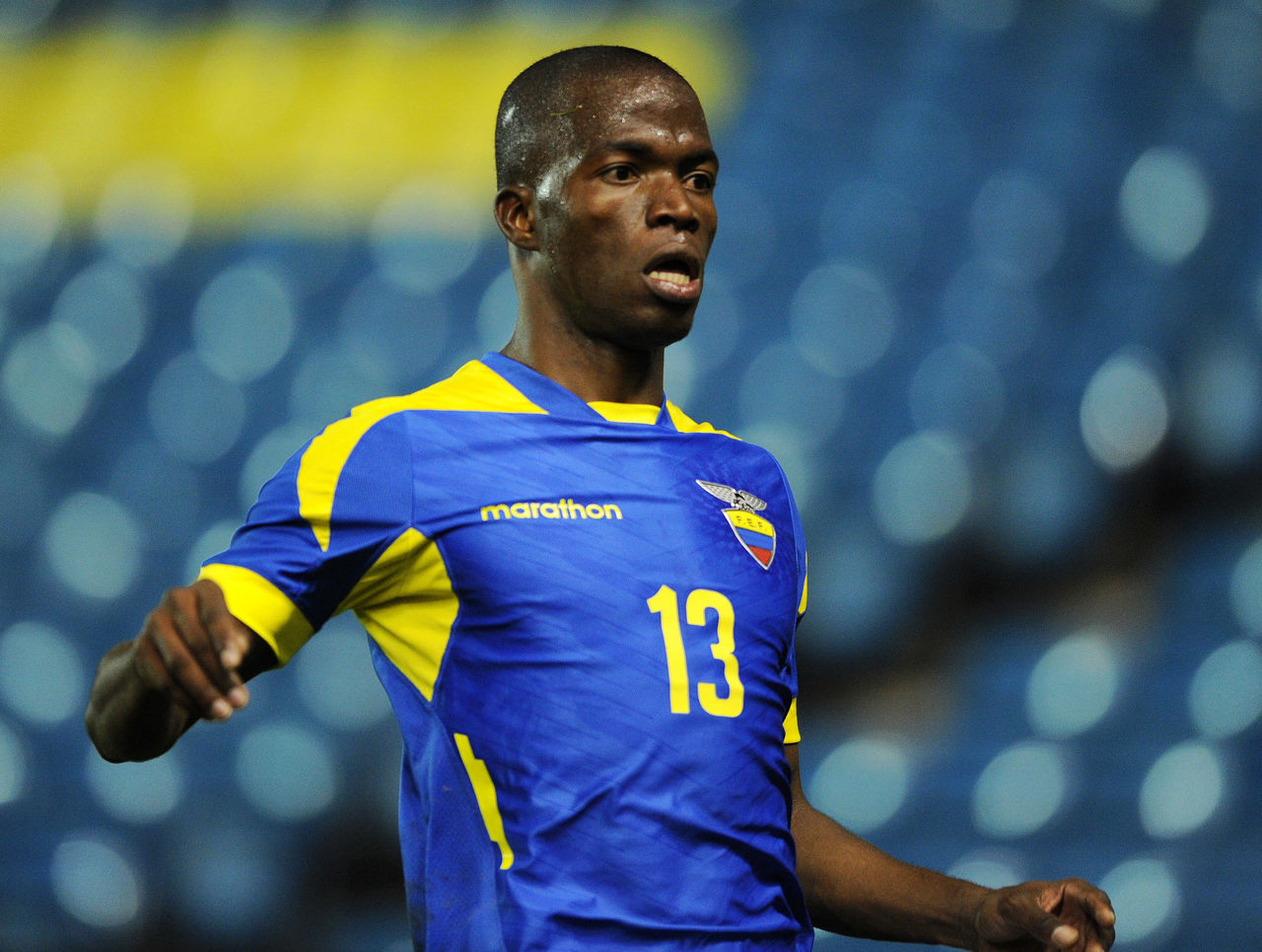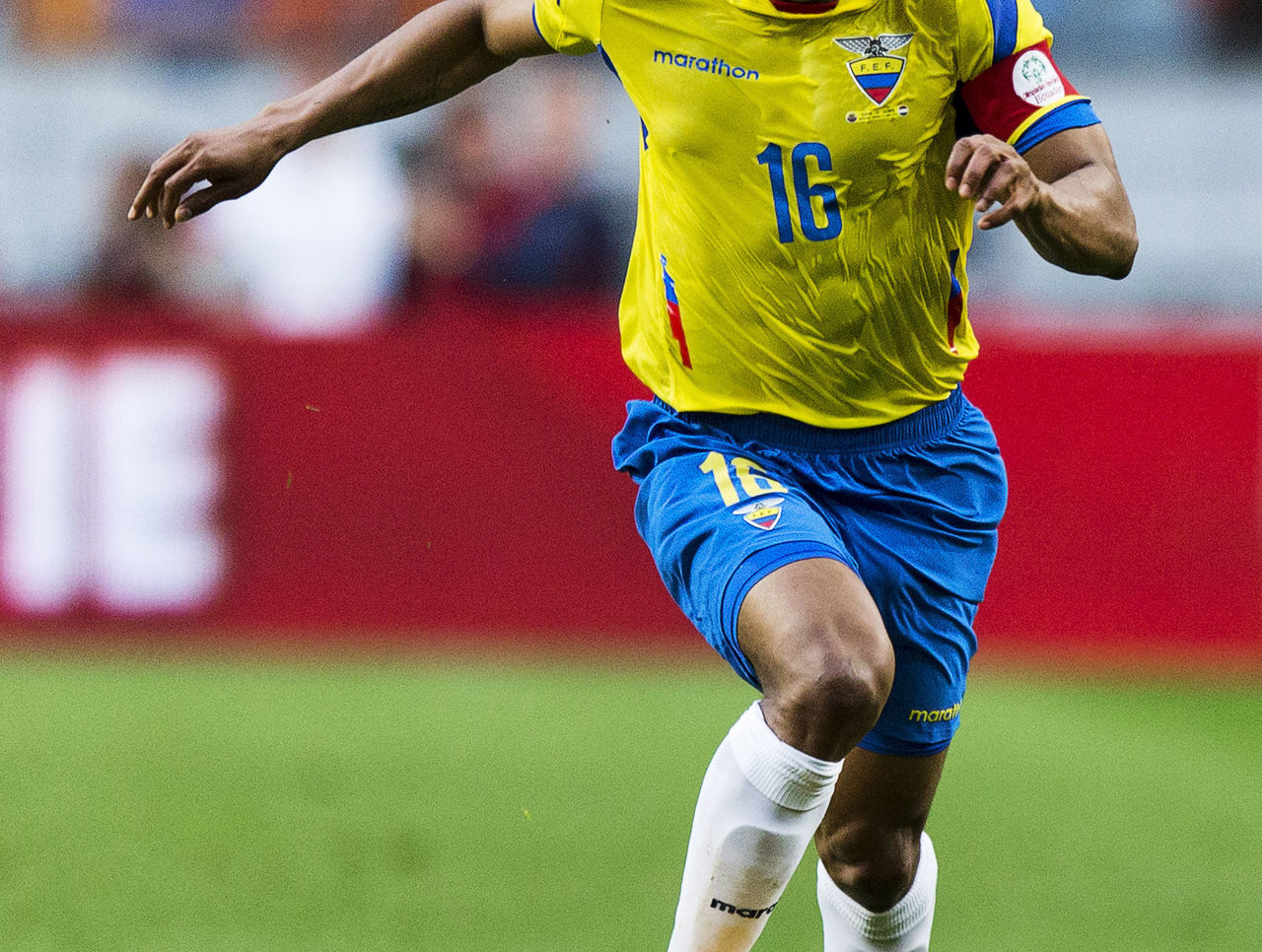How Ecuador adjusted for the World Cup in the face of tragedy
If Ecuadorian football is embodied by a genuine love of playing the game, then no player provides a better depiction of the country's style than Christian Benitez.
While on the pitch in his yellow jersey, blue shorts, and red socks, Chucho always seemed like he was resisting the urge to smile. Perhaps he didn't want to undermine the seriousness of World Cup qualifying. But then he'd score a sublime goal and the smile would come out as he ran down the goal line to dance with the corner flag.
His haircuts reflected his personality. Whether it was his trademark No. 11, a portrait of one of his kids, a simple star, or just a trippy-looking pattern, something was always shaved into his head. He was the epitome of cool, taking an approach to life that most people would envy.
All these things are what made Benitez's death on July 29, 2013 such a tragedy. It's always sad when someone's life is taken from them prematurely, but when it's somebody with the aura that Chucho had, the impact is bound to be greater and more far-reaching.
Benitez was playing his first game with El Jaish in Qatar when he went to the hospital with strong stomach pains. He died the next day of heart failure, and doctors later discovered he had an undetected congenital heart problem.

At the time of Benitez's death, Ecuador were sitting fourth in qualifying with four matchdays remaining. Their campaign was going well thanks to a 6-0-0 home record, but the seemingly heartless question of who will replace Chucho needed to be addressed.
Benitez was Ecuador's most well-rounded player, providing a presence in the middle of the pitch that no other member of the squad could replicate.
He possessed a phenomenal eye for goals and could even score with his head despite standing at only 5-foot-6. In fact, three of his four goals in Ecuador's qualifying campaign came off headers, a testament to his NBA-esque vertical. His pace was astounding. He could make 30-to-40-yard runs before playing a deadly through ball for an oncoming runner. He really was the complete player.
How would Ecuador recover from such a devastating blow?
Well, manager Reinaldo Rueda made two moves.
Insertion of Enner Valencia

Ecuador's first match following Benitez's death was a friendly against Spain in mid-August.
There was lots of speculation over who Rueda would select as a direct replacement, and in the end, the manager opted for 24-year-old Enner Valencia, who was quickly making a name for himself at Emelec but had barely featured for his national team.
Although Ecuador lost 2-0, Valencia showed an instant understanding of the team's quick-passing style of play and almost scored in the 61st minute when he headed a cross from Christian Noboa off the post.
The performance earned Valencia a spot in Ecuador's starting XI for the remainder of the team's qualifying campaign, but it was once La Tri secured their World Cup berth that he really started to show his worth.
In a November friendly against Honduras, Valencia scored a screamer in the final minutes of the match to salvage a 2-2 draw for Ecuador.
It was Valencia's first international goal, and it seemed to open the floodgates. He's now scored four goals in Ecuador's last five matches, and even if Benitez were still around, it would be hard to imagine Rueda not finding room for him in his starting XI at the World Cup.
Sure, he might not be as complete of a player as Chucho. But Valencia, who now features for Pachuca and finished the Liga MX's 2014 Clausura as the league's top scorer, is as good of a replacement as Ecuador could ask for.
Pushing Antonio Valencia to the middle

With Ecuador no longer able to benefit from Benitez's relentless attacks down the middle of the pitch, Antonio Valencia has been forced to fill the void by moving away from his traditional role on the right flank.
Make no mistake about it. Valencia is still a right midfielder who spends the overwhelming majority of his time on the wing. But now, he can also be seen leading attacks down the middle, something that was uncharacteristic of his game one year ago. And when he's deployed away from the right side, Ecuador have no shortage of wingers who can fill his spot.
For an idea of just how well Valencia's settled into the new role, here's a comparison of two goals from Ecuador's qualifying campaign.
First up is Benitez assisting a goal against Peru following an incredible run from the centre circle:
Next up is Valencia assisting a nearly-identical goal in Ecuador's final qualifier against Chile:
Notice how eerily similar the two goals are?
Valencia clearly understands how Benitez provided a channel of attack down the middle and he's competent enough to replicate the role to a large degree. On a team that often over-relied on attacking down the flanks during its qualifying campaign, Valencia's ability to play out of position is crucial.
It's also worth noting that this isn't the first time La Tri have gone to the World Cup in the wake of a tragedy.
At their last appearance in 2006, Ecuador were dealing with the death of Otilino Tenorio, who had been killed in a car accident one year earlier. Tenorio may not have had the skill set that Benitez had, but he scored five goals in 13 appearances for La Tri and had a bright future ahead of him.
When Ivan Kaviedes gave Ecuador a 3-0 lead against Costa Rica, he paid tribute to Tenorio by celebrating the goal with a Spider-Man mask. Tenorio would always keep a mask of the Marvel Comics superhero in his shorts or socks and pull it out each time he scored. "Spider-Man" was his son's favorite movie.
If and when Ecuador score in Brazil, a similar tribute will undoubtedly be paid to Benitez, whose absence at the World Cup will be heavily felt by all 23 of the squad's members.
Quería compartir con ustedes este homenaje en honor a mi hermano CHUCHO. Nunca te olvidaremos! pic.twitter.com/u5Z5u7yhub
— Antonio Valencia (@7AntoV) August 9, 2013
HEADLINES
- Neymar has minor knee surgery, still hopes to play in World Cup
- Messi vs. Yamal: Argentina, Spain to contest Finalissima in March
- World Cup winner's record $50M jackpot far below CWC windfall
- Netflix to launch FIFA World Cup video game
- Small number of World Cup tickets set at $60 after global fan backlash